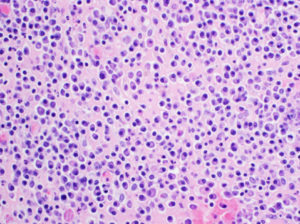Anti-CD38 therapies such as daratumumab have increased survival time for patients with multiple myeloma. This novel therapy, however, interferes with blood compatibility testing. Anti-CD38-sensitized red blood cells agglutinate during testing which could mask the presence of alloantibodies or mimic a high-prevalence alloantibody. Several methods are used to provide safe transfusions for this patient group, including treating RBCs with thiol- or trypsin, neutralizing the antibody, and antigen matching by either serological phenotyping or genotyping. In order to determine the most cost-effective strategy, researchers compared approaches in 62 patients including thiol-treated RBCs (n=28), genotyping (n=23), and a combination of thiol-treatments with antigen matching by genotyping (n=11). The most cost-effective method for blood compatibility testing was found to vary depending on the transfusion needs of the patient. Thiol-treated RBCs for transfusions was the least expensive method for the first transfusion. However, antigen-matching by genotyping was more cost-effective for patients needing multiple transfusions and alloantibody screens. Since anti-CD38 therapy for multiple myeloma is a fairly new therapeutic approach, the transfusion needs of these patients and the best compatibility testing method will need to be closely monitored.
Reference:

